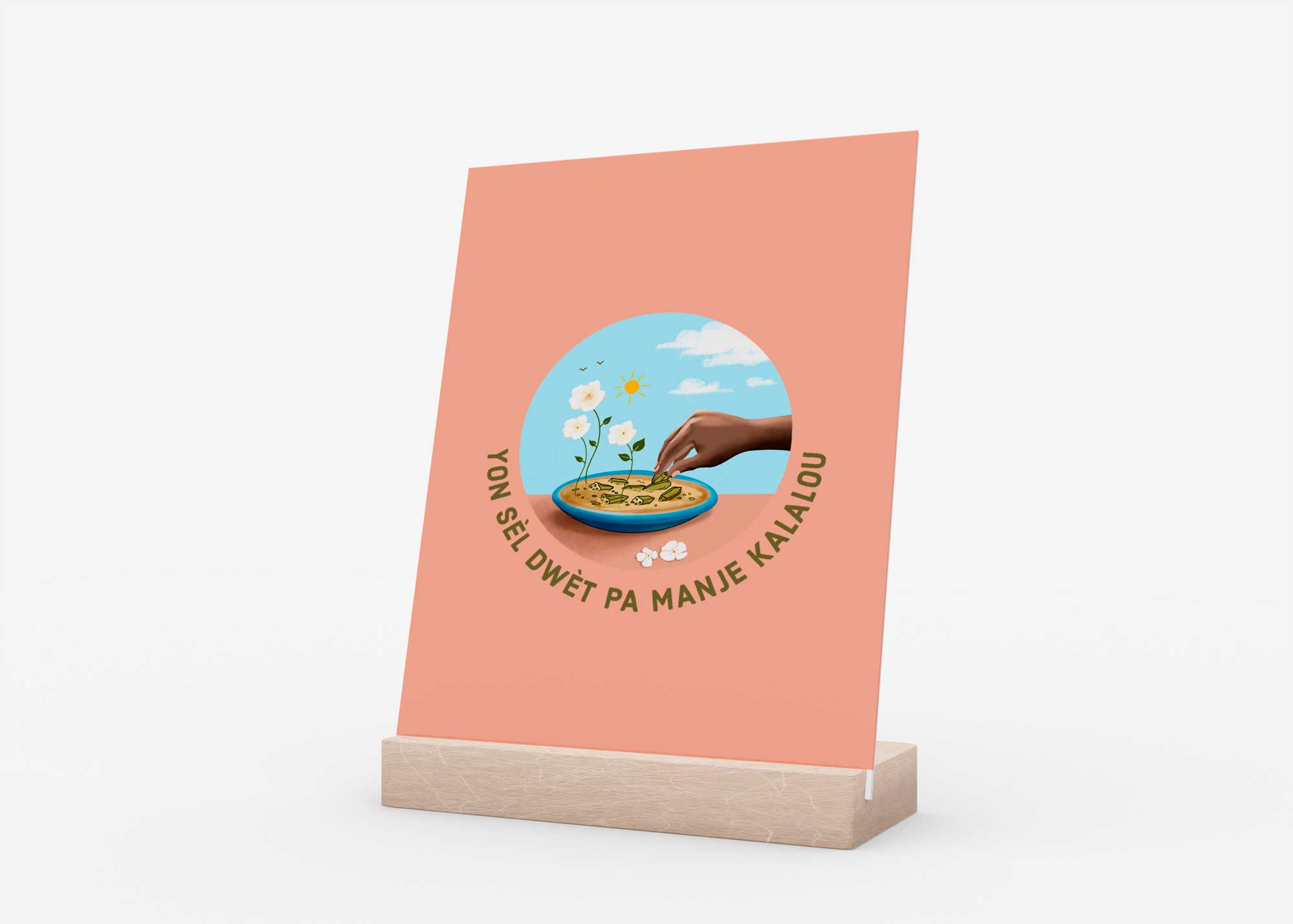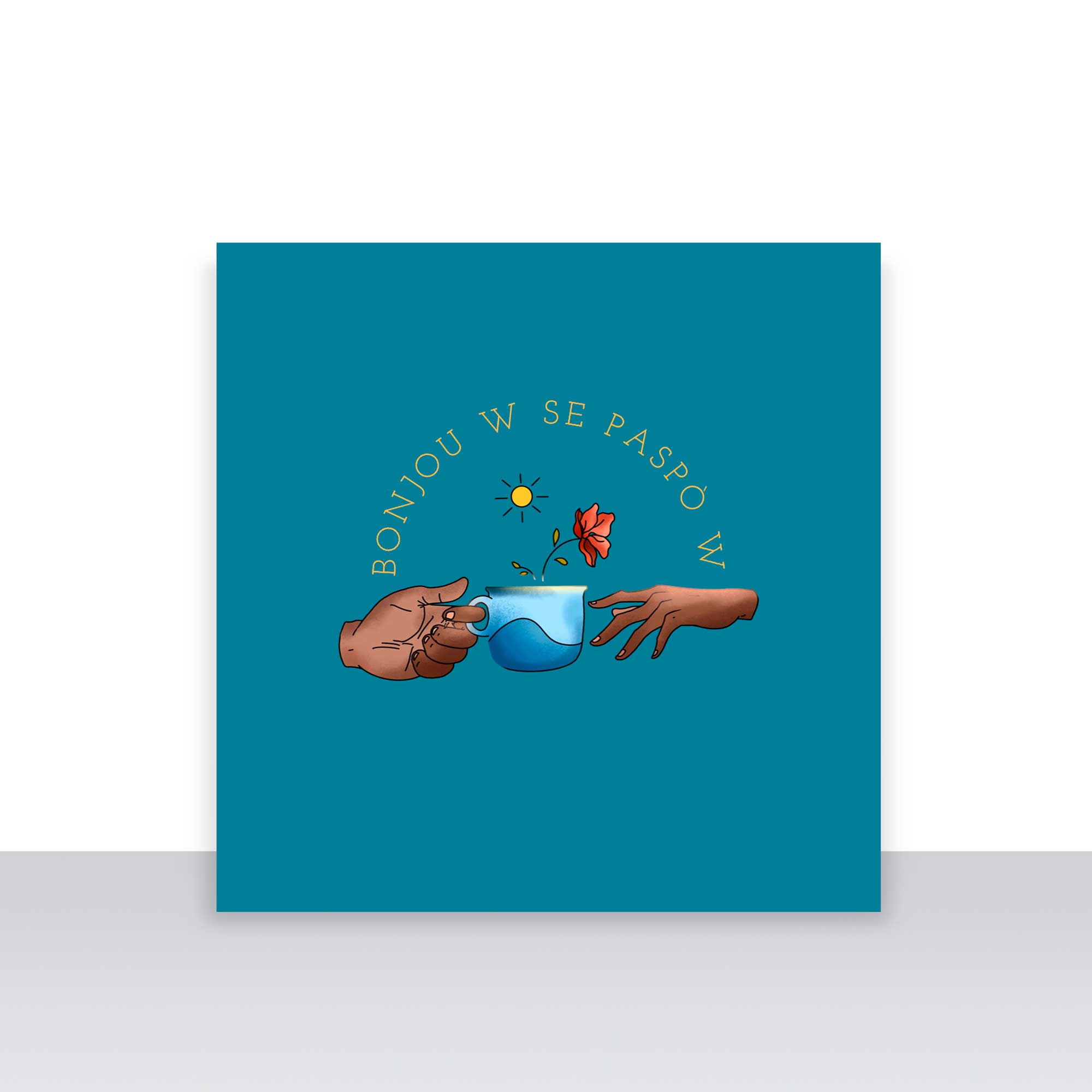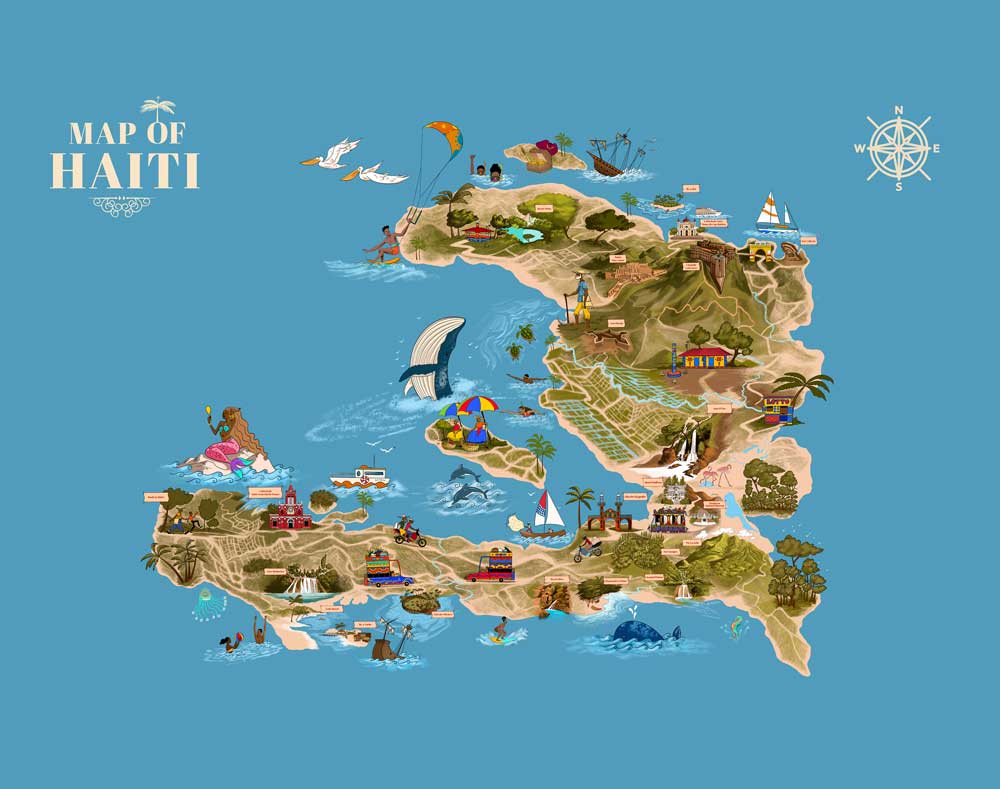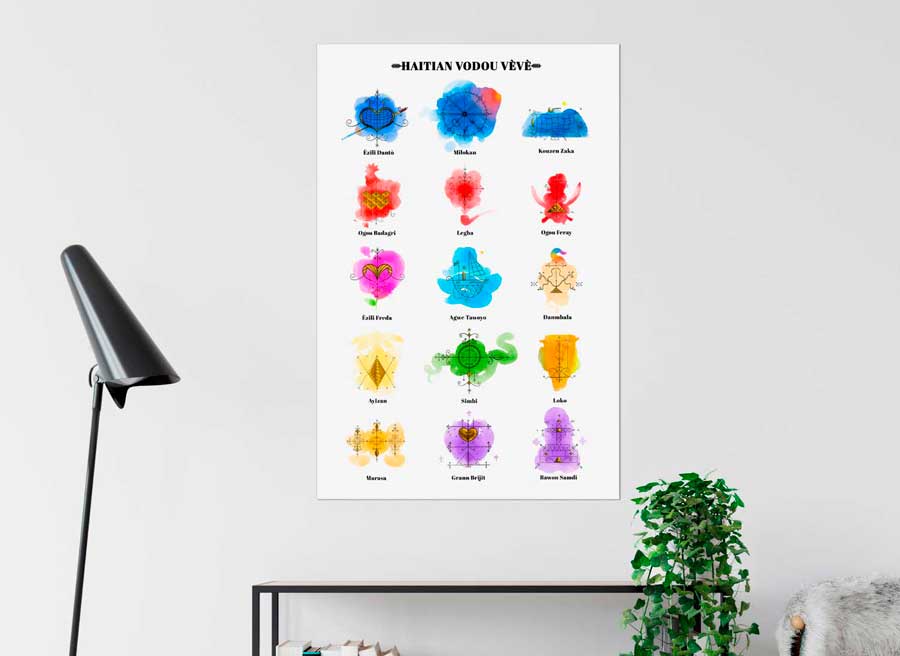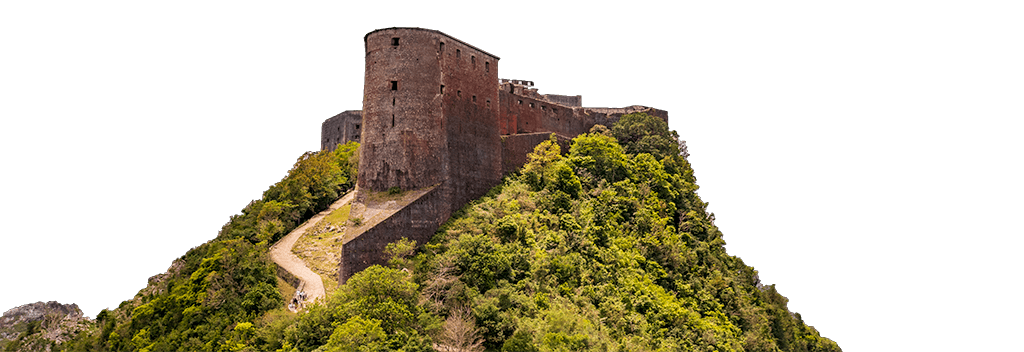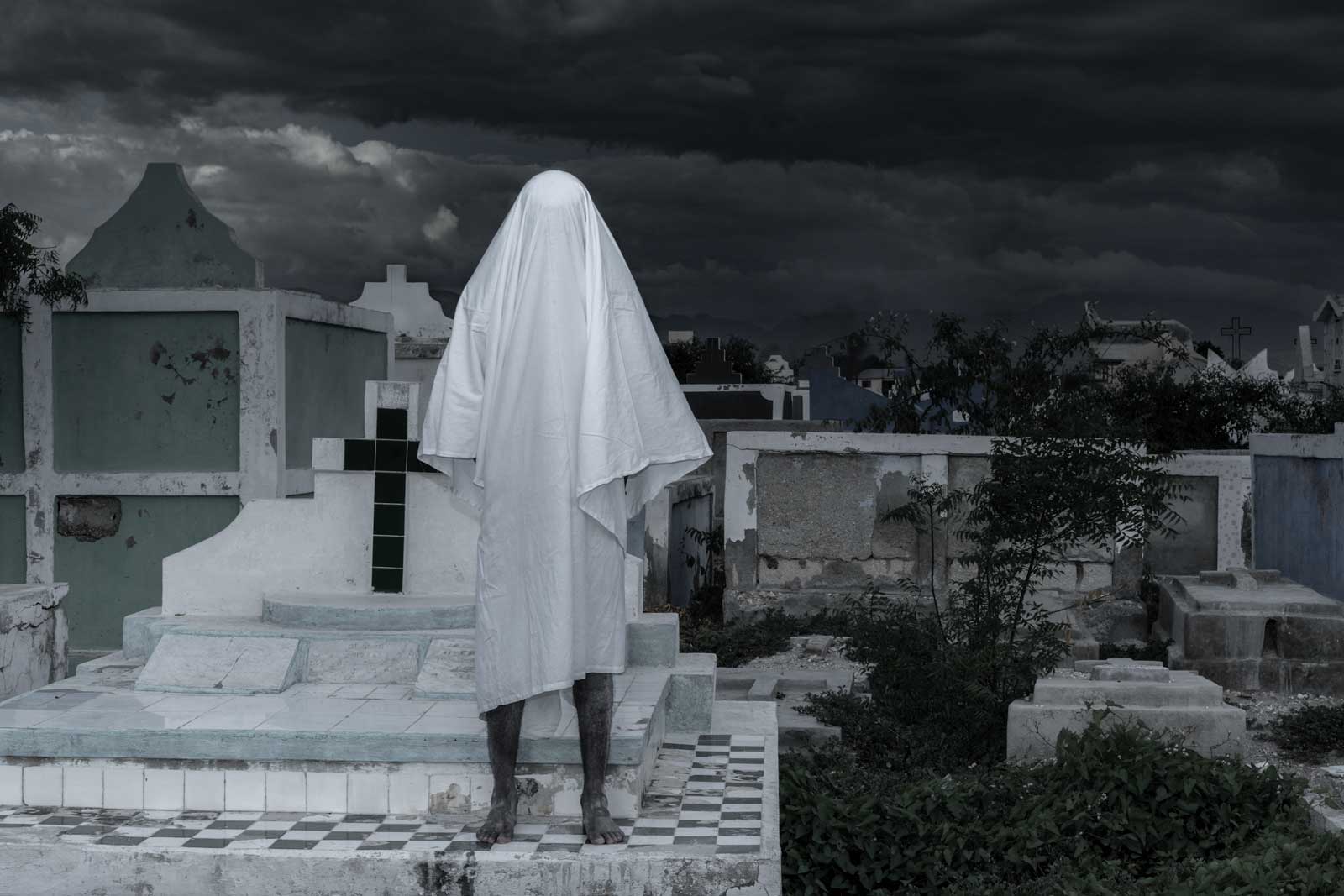
Photo: Jean Oscar Augustin
Insights from an Insider: Discover the True Story of Haitian Zombies
Ever wondered about the true story of Haitian zombies? Far removed from Hollywood depictions, the mythology of these fascinating yet misunderstood creatures was shaped by deep-rooted beliefs and the trauma of slavery.
Embarking on a journey means stepping away from the familiarity of home, venturing into unknown territories, and experiencing profound transformations—not just in our surroundings but within ourselves as well.
The story you’re about to read might feel a bit like that. It’s a journey into the heart of Haitian culture, where you’ll encounter one of the most mystifying and misunderstood aspects of its folklore: the zombie.
What comes to mind when you hear the word “zombie”? These terrifying, flesh-eating creatures have become staples of horror films and video games over the past few decades. From the seminal 1968 film Night of the Living Dead to the modern phenomena of The Walking Dead series and games like Resident Evil, zombies have firmly entrenched themselves in global pop culture.
However, many are unaware that the zombie myth originated right here in Haiti. In fact, the word itself is a Haitian Creole word. And though the Hollywood portrayal of zombies is far removed from the original Haitian myth, they all owe their heritage to Haiti, and in particular to the former enslaved people of the island.
So, how did this myth evolve into an important part of global pop culture, becoming a collective cultural touchstone recognized worldwide?
To give you the true story, we’re going to have to go back in time—not just to the 1980s, where the most recent global fascination with zombies started. We’re going all the way back to the 17th and 18th centuries.
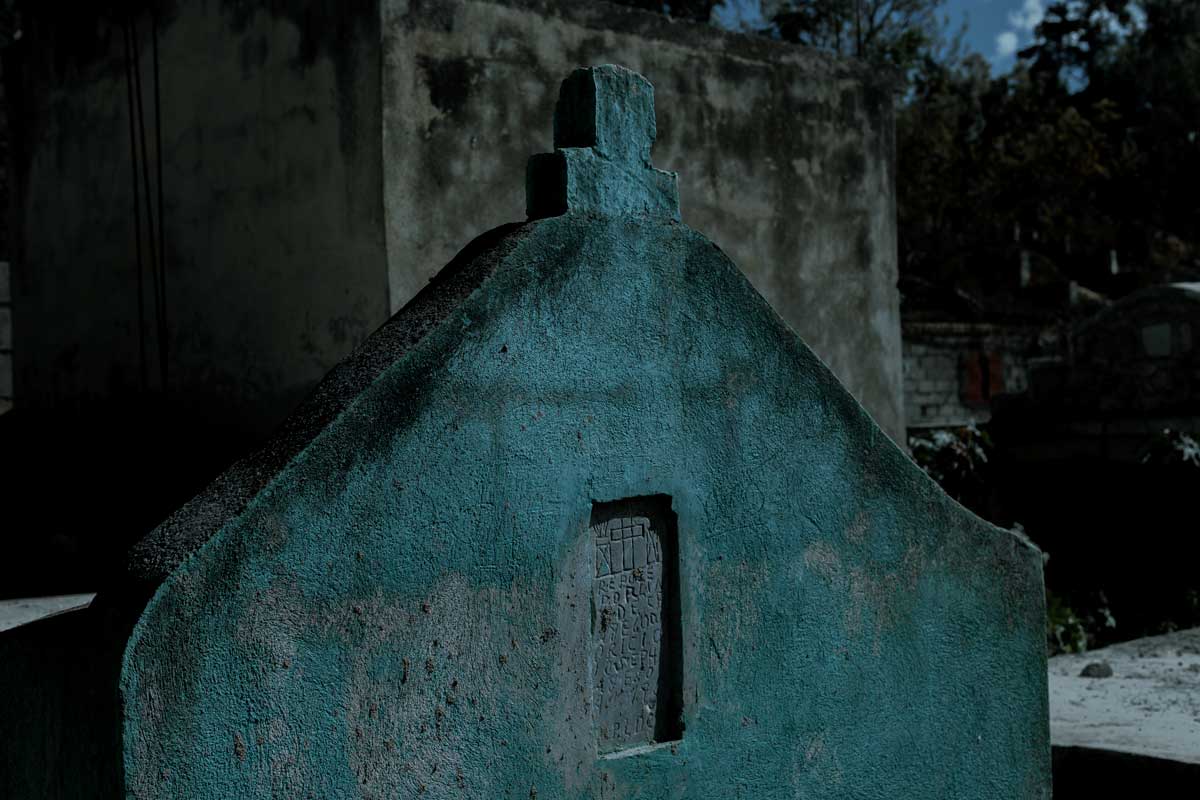
Photo: Alain David Lescouflair
Origins of the Zombie Myth
The history of zombies in Haiti dates back to the 17th and 18th centuries, during the era of Saint-Domingue, a colony brutally ruled by France. French colonialists forcibly brought enslaved Africans to work on sugar plantations, subjecting them to inhumane and extreme conditions. The death rate was so high that half of the enslaved brought from Africa died within a few years, prompting the French to continually replenish their labor force with new captives. This era of brutal exploitation and the pervasive fears and beliefs of the enslaved people sowed the seeds of what would evolve into the modern myth of the zombie.
Zombies are a significant yet singular aspect of Haitian folklore, akin to the roles of boogeymen or vampires in Western stories. The nocturnal world of Haitian legends is populated with myriad entities, each reflecting deeper social and spiritual beliefs. Among these are hairless pigs, believed to be the incarnations of powerful secret societies that patrol the night, bloodthirsty Lougawous, and the towering Mèt Minwi, which you can read more about here.
Within this landscape teeming with mythical creatures, the concept of the zombie was born—a concept deeply intertwined with cultural beliefs inherited from Africa. The Haitian word “zonbi” is believed to derive from the Kikongo word “nzumbi,” which translates to ‘soul’ or ‘spirit of the dead.’ This origin highlights a profound Haitian fear of soul theft—a fate believed to be worse than death itself.
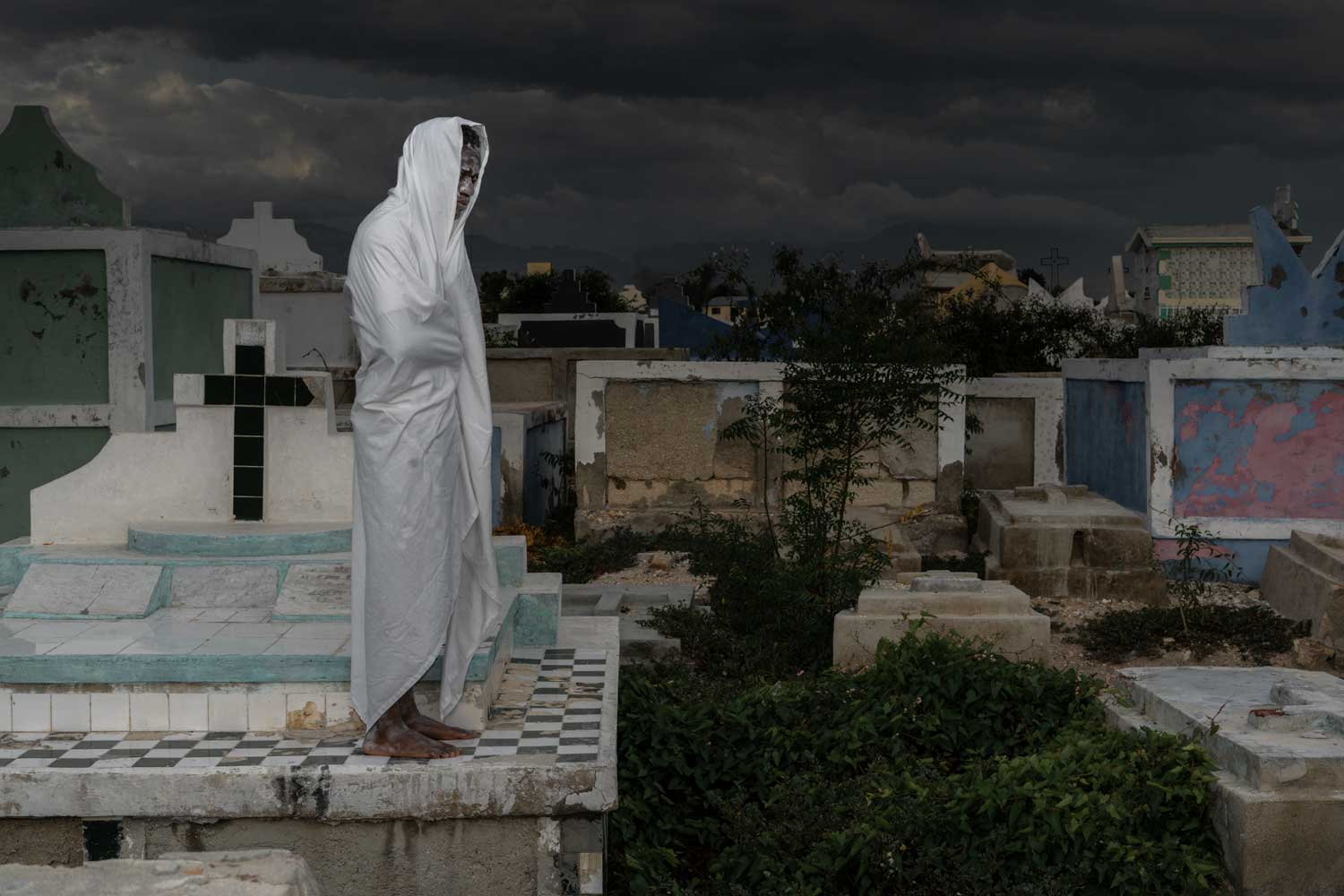
Photo: Jean Oscar Augustin
Misinterpretations by Western Media
Though Haitian folklore is replete with mystical creatures, it was the zombie that captured Hollywood’s imagination and achieved global fame. This fascination began during the long U.S. invasion and occupation of Haiti, starting in 1915, when returning soldiers and journalists brought home exotic stories from the Caribbean island. Their tales painted Haiti as both an exotic and savagely mystical land, a portrayal that captivated the American public.
The 1929 best-selling travel book, The Magic Island, played a pivotal role in shaping American perceptions of Haitian culture. The book introduced the concept of the Haitian zombie to American pop culture, setting the stage for a slew of sensationalized and exploitative adaptations. The most notable of these was the 1932 movie White Zombie.
The early fascination with zombies also sparked a wave of scientific and literary interest. Anthropologist Zora Neale Hurston, influenced by the story she read in The Magic Island, traveled to Haiti in 1936 to study Haitian Vodou and folklore. Her subsequent book, Tell My Horse, delves into the magical realism of Haiti and chronicles her exploration of the centuries-old belief in zombies.
Although some critics dismissed her accounts as urban fiction, Hurston’s work highlighted the deep connection between zombies and Haitian folklore. She revealed that local sorcerers, known as bokors, could allegedly use a secret potion to impair individuals’ vital and cerebral functions, transforming them into the living dead, similar to the zombies of Haitian lore.
From this exploration, a real hunt for zombies in Haiti began, attracting numerous researchers in search of the infamous zombie powder. Each new book and hype cycle tended to focus on sensationalized, exotic stories or on debunking myths. This trend continued with works like the 1988 book The Serpent and the Rainbow, later adapted into a film, and even a 2012 VICE documentary titled Investigating the Haitian Zombie, which was at best disrespectful and superficial.
Despite these interpretations, the zombie remains an integral part of our Haitian cultural landscape. Zombies feature in our storytelling, carnival celebrations, proverbs, religious practices, and even our Penal Code.
As Zora Neale Hurston vividly notes, “in Haiti, stories of zombies spread and circulate like a cold breeze.” Even a short stay here is enough to hear the chilling tales of corpses stolen at dusk and the dead brought back to life for servile labor. These stories, steeped in the realities of past oppressions and current fears, continue to shape the Haitian understanding of life, death, and beyond.
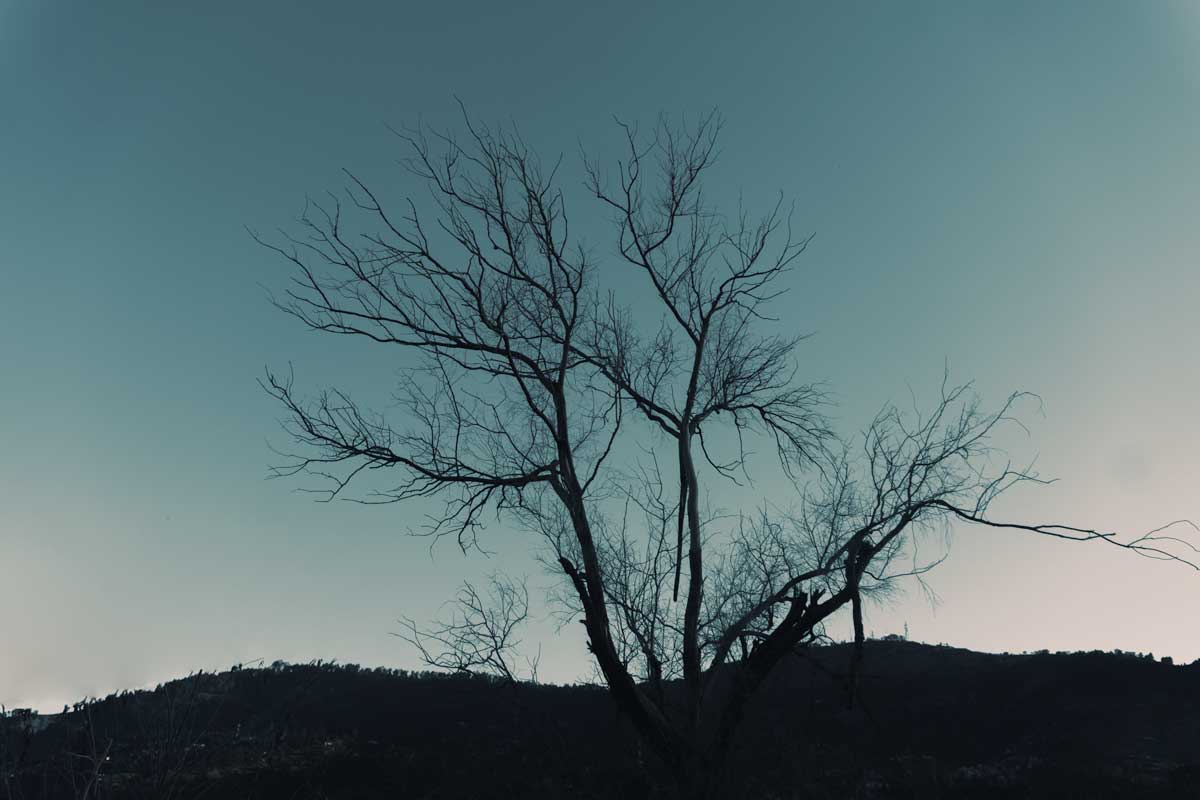
Photo: Alain David Lescouflair
Demystifying the Haitian Zombie
Contrary to the portrayal in Western popular culture, in Haiti, a zombie is primarily a living human being whose mental faculties have been severely altered. In Haitian society, it’s common to metaphorically describe someone with diminished mental capabilities or who shows laziness as behaving like a zombie. This is reflected in the popular Creole saying, “si m ap mache tèt atè sa pa vle di m zombi pour sa” (meaning “if I’m walking with my head down, it doesn’t make me a zombie”).
Delving deeper into Haitian beliefs and traditions reveals the significant role of salt in zombie mythology. Being a zombie in Haitian culture is often seen as a condition where a person remains constantly under the control of a Bokor or sorcerer. The Bokor must regularly administer a special potion to keep their victim in an unconscious state and maintain control. Salt is known as one of the antidotes to this state; it is believed that a zombie who tastes salt will regain their senses, as the Haitian proverb goes: “zonbi goute sel li pa mande rete” (a zombie who tastes salt will not ask to stay).
Zombies as Symbols of Resistance
In Haitian popular culture, the portrayal of zombies creates a powerful symbolic representation of the servitude relationship between the zombie and its creator. This relationship mirrors the master-slave dynamics of the colonial period, where death was often seen as a merciful escape from the brutal realities of forced labor.
Moreover, zombification is considered by some as a form of resistance against slavery. It is a strategy that was purportedly employed by secret societies formed by runaway enslaved individuals. These groups, drawing on their extensive knowledge of botany, developed poisons and remedies. Beyond the horrifying practice of poisoning newborns to spare them the horrors of slavery, it is believed that zombification was also used by some enslaved people as a means to escape from plantations.
Zombie Folklore vs. Reality
The enduring fascination with the zombies of Haitian folklore, and the extensive scientific research it has inspired, stem largely from a Western desire to demystify what are, for the Haitian people, deeply intimate beliefs. In Haiti, as well as for their African ancestors, death—whether natural or induced—is not the end but a journey that may be fraught with complications.
When Haitians talk about zombies, Lougawou, and hairless pigs with the casualness of discussing the weather, it reflects a cultural familiarity with these concepts, rather than a need to unravel them. They fear not the mystery of zombie powder, but the real possibility of losing their souls’ essence, having witnessed “revenants”—those who return as mere shadows of their former selves—and thus, they accept the reality of zombies.
This deep connection between the Haitian imagination, Vodou, African cultural heritage, and the traumatic legacy of slavery explains the pervasive presence of zombies in Haitian life. A zombie symbolizes more than just a spectral figure; it embodies the fears of a people subdued by broken promises, the enforcement of contracts through the dread of supernatural retribution, and even a fiancé’s fear of breaking a commitment, lest he finds himself ensnared in mystical retribution, trapped in a bottle or lost in a cornfield.
Zora Neale Hurston poignantly concluded that the key to understanding zombies lay not in finding a secret potion or in debunking another people’s mythology. It was actually believing in them. “If you could twist your brain into seeing that fact, then you had taken a giant step toward seeing Haiti—and most importantly, its spirituality—from the inside.”
Written by Costaguinov Baptiste.
Published July 2024.
Explore Haitian Vodou and Spirituality

Paradise for your inbox
Your monthly ticket to Haiti awaits! Get first-hand travel tips, the latest news, and inspiring stories delivered straight to your inbox—no spam, just paradise.


